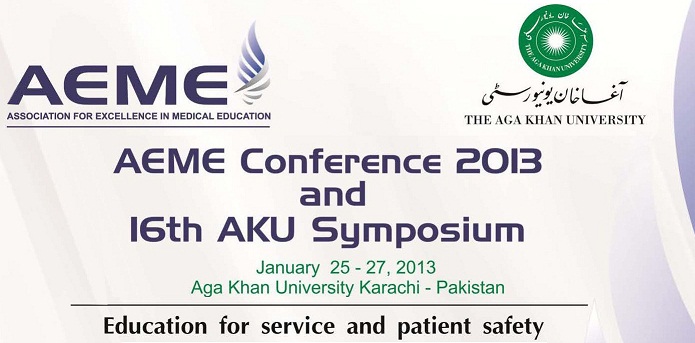Day 2 : Poster Presentations (Theme: Evaluation & Assessment)
Evaluation of resident’s educational quality in university hospitals in AHVAZ with use of EFQM Model in 2011
Location
Auditorium Pond Side
Start Date
27-1-2013 8:30 AM
Abstract
Given the importance of quality education, Evaluation of resident’s educational quality in university hospitals coverage university of Ahwaz was evaluated using the EFQM model. This study is a descriptive - cross sectional study in 2011. In the present study, 9 criteria of the EFQM model, three groups with different perspectives and with three separate questionnaires, in order to assess the quality of residency training. First group (N=30) from specialists, second group (N=50) from residents and third group (N=50) from patients were simple–randomly. In total, 130 were members of this research. The choice of three different groups was that the quality of education from different perspectives and from all angles to be evaluated. Distribution of three questionnaires and the interviews were conducted with the researcher. Data obtained with T-test and descriptive and inferential statistics were analyzed by SPSS 16.0 software. The cut-off point 3.5 (score 700 of 1000) and significance level (P value)
Evaluation of resident’s educational quality in university hospitals in AHVAZ with use of EFQM Model in 2011
Auditorium Pond Side
Given the importance of quality education, Evaluation of resident’s educational quality in university hospitals coverage university of Ahwaz was evaluated using the EFQM model. This study is a descriptive - cross sectional study in 2011. In the present study, 9 criteria of the EFQM model, three groups with different perspectives and with three separate questionnaires, in order to assess the quality of residency training. First group (N=30) from specialists, second group (N=50) from residents and third group (N=50) from patients were simple–randomly. In total, 130 were members of this research. The choice of three different groups was that the quality of education from different perspectives and from all angles to be evaluated. Distribution of three questionnaires and the interviews were conducted with the researcher. Data obtained with T-test and descriptive and inferential statistics were analyzed by SPSS 16.0 software. The cut-off point 3.5 (score 700 of 1000) and significance level (P value)

